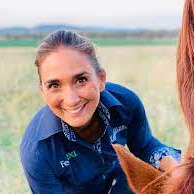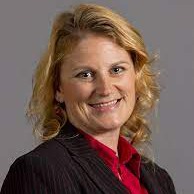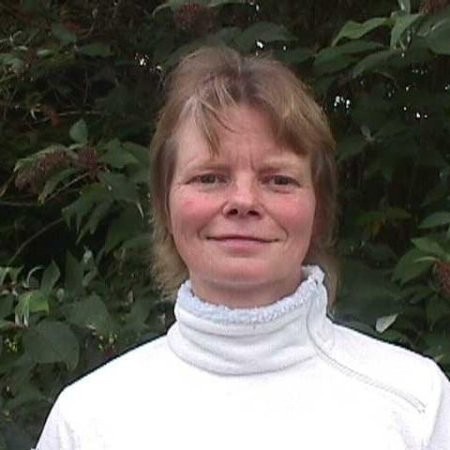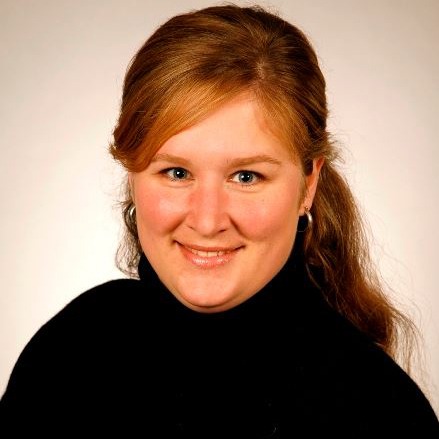Nutritional Management of the Obese Horse/Pony & Pasture Management for the Laminitic Horse
Species
Equine
Contact Hours
6 Hours
Early Booking Deadline
Thu, 01 January, 1970
Registration Deadline
Thu, 01 January, 1970
Language
English
Discipline
Geriatrics
Internal Medicine – Endocrinology, Haematology, Infectious Diseases, Parasitology & Oncology
Nutrition
Industry Partners
Global

Veterinary Partners
Global


Recorded on: 16th August 2022
Panelists:
Simon Bailey BVMS, PhD, FHEA, DECVPT, FRCVS - Melbourne Veterinary School, Australia
Myriam Hesta PhDVetSci, DECVCN - Ghent University, Belgium
Krishona Martinson PhD – University of Minnesota, USA
Moderator:
Pat Harris MA, PhD, DECVCN, VetMB, MRCVS – Waltham Petcare Science Institute & Mars Equestrian, UK
CONTENT DESCRIPTION
Obesity continues to be a major health and welfare problem in many sectors of the equine industry. A truly international panel consisting of equine nutritionists and veterinary clinical researchers will discuss the association between obesity, diet, insulin dysregulation and laminitis; research-based nutrition strategies to encourage bodyweight loss; practical management ideas for reaching and maintaining healthy equine bodyweights; and the important role that veterinarians play in the management of obese equids. Additionally, the panel will debate ways to promote healthy equine bodyweights and obesity prevention.
The discussion is aimed at practicing equine veterinarians and will provide them with useful tips & tricks and pragmatic strategies that can be implemented in their daily clinical work. We look forward to many questions and contributions from attendees.
Upon graduating from the College of Veterinary Medicine at the National University in Colombia, Dr. Samper worked in private dairy and equine practice for a couple of years in his home country and subsequently he earned his Master’s and PhD at the University of Minnesota which focused on reproductive physiology and clinical reproduction. He then became a board-certified specialist in Theriogenology. From there he accepted a faculty position at the University of Guelph in Ontario, Canada. Three years later he joined a mixed practice in Vancouver BC as an associate, and a year and a half later he started his own practice, as a solo practitioner, which later grew into a multi-vet practice, which he sold after 25 years. He has also worked as an associate professor at Kansas State University and in industry for Sexing Technologies. In 2014 he joined the faculty at Ross University School of Veterinary Medicine where he worked as an associate dean for clinical affairs and professional opportunities at mentoring and monitoring the progress of the clinical year veterinary students in all their clinical affiliates around the world. Currently, Dr. Samper is a professor and serves as the associate dean for academic and student affairs at the College of Veterinary Medicine at the University of Florida.
Dr. Nerida McGilchrist graduated from the University of New England with a degree in Rural Science in 1999 and a PhD in Equine Nutrition in 2004. She is a registered animal nutritionist (equine) with the Nutrition Society of Australia. Dr. McGilchrist founded Equilize Horse Nutrition in 2003, providing expert technical support to feed and supplement companies in Australia and abroad. She developed and commercialised FeedXL, an online equine nutrition calculator used worldwide.
Carey A. Williams, Ph.D. joined Rutgers University in July 2003 as its Equine Extension Specialist, and Associate Director of Outreach for the Equine Science Center taking an active role in teaching, conducting research and working with the equine and academic communities to ensure the viability of the horse industry in New Jersey.
A Wisconsin native, Dr. Williams earned her doctorate degree in animal and poultry sciences (with an emphasis on equine nutrition and exercise physiology) in June 2003 from Virginia Polytechnic Institute and State University. She holds a master’s degree in equine nutrition, also from Virginia Tech, and a bachelor’s degree from Colorado State University.
She has worked extensively at Virginia Tech as a Pratt Fellow in Equine Nutrition, has designed and conducted various research projects dealing with equine nutrition and exercise physiology and assisted in the breeding, care and feeding of approximately 100 horses. At Rutgers, Dr. Williams maintains a herd of Standardbred horses for exercise physiology research; more specifically how we can decrease the stress of intense exercise. She also works with agricultural agents within Rutgers Cooperative Extension and the Natural Resource Conservation Service to carryout equine pasture management initiatives. She has started several research projects on Best Management Practices with horse farms and finding ways for farmers to keep their horse farms environmentally friendly while maintaining optimal horse health and economic viability.
She is a member of many associations, including the American Association of Veterinary Nutritionists, the Equine Science Society, to name a few. Dr. Williams has also recently been awarded the Northeast Section of the American Society of Animals Science and the American Dairy Science Association’s Outstanding Young Educator award in 2007, along with Rutgers NJAES Cooperative Extension’s Merle V. Adams Award to an outstanding junior faculty member in 2007. In 2009 she was also awarded the Equine Science Society’s Outstanding Young Professional. As a hobby she trains and competes with her Thoroughbred mare at various local and regional dressage shows and horse trials.
Annette obtained her first degree at the University of Stirling in 1978 and following a two year period of teaching Biology ‘A’ level in the Caribbean, undertook a PhD in plant biochemistry at Imperial College of Science and Technology, London. Immediately thereafter, she worked as a post-doctoral Fellow at the University of Hull, in the department of Plant Biology. In 1985 she gained a post at what was to became the Institute of Grassland and Environmental Research (IGER) at Shinfield, Reading where she worked on the potential uses of various fibrous by-products of the food industry for pig nutrition. In 1991 she accepted a post at IGER Aberystwyth, to work on both fresh and conserved forages for ruminants, but this work soon incorporated an increasing move towards equine nutrition. In 2004 Annette left IGER to set up her own business, Equine and Livestock Nutrition Services (ELNS). ELNS largely focusses on various aspects of both fresh and conserved forages for equines, including the management of pasture intakes by horses and ponies. Over the years, Annette has supervised a number of Masters and PhD students from the UK and overseas, lectured at a number of Universities and has delivered papers at many Conferences throughout the world. She has written a number of book chapters and has published widely in peer-reviewed journals. She is a keen horse rider and regularly competes in various disciplines.
Krishona Martinson, PhD, MS, is a professor of equine science and leads the University of Minnesota Extension Horse Program and is an equine extension specialist. Her applied research program focuses on improving equine forage utilization. She currently serves on the Equine Science Society board of directors. Along with her daughters, Martinson competes locally in timed events.
After time spent in mixed veterinary practice in the UK, Simon undertook his PhD in equine laminitis at the Royal Veterinary College, London. He continued with research in cardiovascular pharmacology and inflammation at the RVC for a further 4 years and then spent two years as a research scientist at the Dorothy Davis Heart and Lung Research Institute at the Ohio State University Medical Center, Columbus, Ohio.
He then returned to the Royal Veterinary College as a lecturer in 2004 and moved to the University of Melbourne in 2007. He is currently Professor of Veterinary Biosciences and Head of the Department of Veterinary Biociences at the Melbourne Veterinary School. Simon has published more than 100 papers in peer-reviewed journals and his main research areas are endocrinology, equine laminitis, sepsis and cardiovascular pharmacology. He is a member of national and international expert panels on clinical equine endocrinology, has served as Associate Editor of the journals Domestic Animal Endocrinology and The Veterinary Journal, and has been an Associate Editor of the Australian Veterinary Journal for the past 10 years.
In 1996, Myriam Hesta graduated at the Faculty of Veterinary Medicine, Ghent University. In 1997, she started working at the Animal Nutrition Laboratory at the same faculty. She started nutrition consultations at the small animal clinic at the university and in 2001 she successfully passed her ECVCN (European College of Veterinary and Comparative Nutrition) certifying exam. Her main research topic, impact of prebiotic supplementation in dogs and cats, resulted in a PhD degree in 2003. At this moment she is lecturer in companion animal nutrition at the Ghent University. Her current topics of interest are obesity and effect of nutrition on gastrointestinal health in companion animals including horses. In 2011, she started a equine nutrition consultation service for horse owners and veterinarians. A similar service is also available for dogs and cats since a longer period. She is the main supervisor of several ECVCN residents and PhD students.
Veterinary Student
Online Panel Discussion
USD 35.00
Qualified Vet
Online Panel Discussion
USD 85.00
Intern/Resident (Requires proof of status)
Online Panel Discussion
USD 65.00
If the options you are looking for are unavailable, please contact us.
No tax will be added unless you are a UK taxpayer
Choose currency at checkout





















